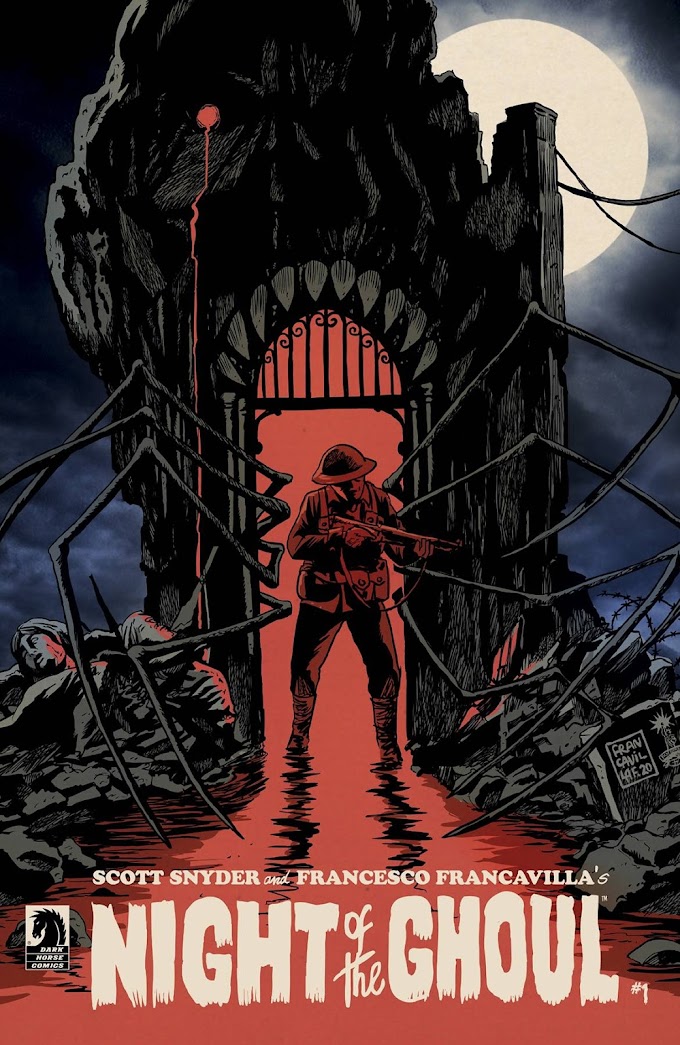Written by Rutu, B. Kolton, and Y. Pinkus
Illustrated by Rutu, B. Kolton, and Y. Pinkus
Top Shelf
A strange connection between sisters (one a diva, one a devotee) takes center stage at an ill-fated performance while three sisters learn to carry on (and carry secrets) at an old hotel with some unsavory clientele Two stories come to life in the hands of innovative Israeli creators in this flipbook published in the US by Top Shelf.
This is one of those graphic novels I had kicking around in the "read it someday" pile. I used to do this a lot, but now that I am in "conserve space and money" mode, I don't do this nearly as often. While I will miss picking up entertaining books like this one, the overall ratio is just not very good.
When you do succeed, however, it's always a pleasure, and it's not surprising that this is a Top Shelf book, as they are one of the publishers I tend to blindly trust. They're very good at picking material from other countries and giving you a strong representative sample. (In the case of the Scandinavian books, I found them not to be something I wanted more of, but it was awesome to get the chance to try them.)
The Sisters d'Espard was the first story I read, and I was immediately drawn in to this tale of two sisters, one who is successful and uses all of her power to be beastly to those around her. The other sister quietly does the diva's bidding, and is a medium to boot, offering a strange and ominous message to her sister (which is comically dismissed by her Israeli handlers). In the end, there may be more to the warning than meets the eye, but we as the reader are left to guess.
Y. Pinkus really does a nice job with building the situation, making the diva unlikable and thus casting suspicion on all parties when there is an inevitable act of sabotage against the uptight singer. Set in an operatic setting that adds another level to the tragedy, it's a strong short story. Pinkus' art style is very basic, using simple, angular lines that almost throw the characters and their world together. The shading is simple, used mostly to indicate a hint of color here and there and indicate differences in the parties. It's just enough to get the job done, and that's fine by me.
Unlike the mystery involving the diva and her sister, the secrets become clear as the story Bygone plays out. The setting is a fun idea, a hotel basically catering to fetishists, run by three sisters, two of whom probably shouldn't be interacting with such characters. There's not a lot done with that concept, however, which is unfortunate. Rutu instead focuses on the middle sister, who is chafing at her older sister's protectionism. While the older sister is allowed to act inappropriately, our focal character is not, which becomes a problem as she falls for the charms of a young and sexy photographer. The clashes get more heated as things go, leading up to a revelation that puts everything in context but has the potential to turn everyone's world upside down.
The story is extremely post-modern, with characters learning something about themselves and deciding ultimately the knowledge may not be as important as they thought originally. I found the ending a bit rushed to make page count, with Rutu resetting things just a bit too easily for my taste. I'm also a bit troubled by their artwork, which is just a step above sketches. Given the exotic setting, I felt like a different artist might take more time to set us in place or use the hotel's indiscretions to inject more conflict into the narrative. I still liked this one, but came away feeling the art worked against its plot.
Mixed between the two tales are B. Kolton's illustration of very creepy dolls. They're illustrated in folk art style, with muted colors that make them feel like pictures from a museum catalog. It's not really anything groundbreaking, but those who are more into non-narrative comics work should find them interesting.
Overall, Flipper Volume 2 is a good way to sample indie artists from a region we don't see much work in English from. I'm glad I was able to stumble onto a copy. If you'd like to see what Israel's version of, say, Lewis Trondheim might be, this is definitely worth stumbling across yourself.
Footer Copyright
Design by - Blogger Templates | Distributed by Free Blogger Templates






![Sweat and Soap [Ase to Sekken] by Kintetsu Yamada](https://blogger.googleusercontent.com/img/b/R29vZ2xl/AVvXsEgMnQltxjWqGS1_duhCp9Er1a0NbALuSFrqvjaV4_PjN_w67xCGghYt-l0qKyqTH7Ei7gbq_mxVq8aPAuOiyaArwAMLJWhpGmOYaARUBnwvjmv2-ZIe20m_zR5CvKnPdI6US_AuOnmi3gSX/w680/57525895-BA7E-4EF8-9FE4-89F9C164E1A4.jpeg)

